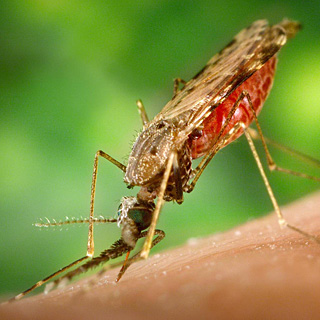 The impact of global warmimg on human fatality ratesJun 17, 2009 - Scientific American
Dear EarthTalk: Has anyone been tracking whether climate change is causing more loss of human life as it gets more pronounced? Researchers believe that global warming is already responsible for some 150,000 deaths each year around the world, and fear that the number may well double by 2030 even if we start getting serious about emissions reductions today. A team of health and climate scientists from the World Health Organization (WHO) and the University of Wisconsin at Madison published these findings last year in the prestigious, peer-reviewed science journal Nature. Besides killing people, global warming also contributes to some five million human illnesses every year, the researchers found. Some of the ways global warming negatively affects human health—especially in developing nations—include: speeding the spread of infectious diseases such as malaria and dengue fever; creating conditions that lead to potentially fatal malnutrition and diarrhea; and increasing the frequency and severity of heat waves, floods and other weather-related disasters. Backing up WHO’s findings is a study by Stanford civil and environmental engineer, Mark Jacobson, showing a direct link between rising levels of carbon dioxide (CO2) in the atmosphere and increased human mortality. He found that the added air pollution caused by each degree Celsius increase in temperature caused by CO2 leads to about 1,000 additional deaths in the U.S. and many more cases of respiratory illness and asthma. Jacobson estimates as many as 20,000 air-pollution related deaths may occur worldwide each year with each one degree Celsius increase. “This is a cause and effect relationship, not just a correlation,” relates Jacobson. “The study was the first to specifically isolate CO2’s effect from that of other global-warming agents and to find quantitatively that chemical and meteorological changes due to CO2 itself increase mortality due to increased ozone, particles and carcinogens in the air.” For their part, though, global warming skeptics such as atmospheric physicist Fred Singer maintain that cold weather snaps are responsible for more human deaths than warm temperatures and heat waves. “The elderly die in inadequately heated homes. People get skull fractures from falls on the ice. Men die of heart attacks while shoveling snow. People get colds, flu, pneumonia and other respiratory diseases. Infectious diseases proliferate. Hospital admissions rise.” Singer, founder of the Science and Environmental Policy Project, concludes that since global warming would raise maximum summer temperatures modestly while raising winter minimum temperatures significantly, it “should help reduce human death rates.” A team of Harvard researchers found otherwise. Their July 2007 study, published in the peer-reviewed Occupational and Environment Medicine, found that global warming is likely to cause more deaths in summer because of higher temperatures, but not fewer deaths in milder winters. In analyzing weather data related to the deaths of 6.5 million people in 50 American cities between 1989 and 2000, the researchers found that during two-day cold snaps there was a 1.59 percent increase in deaths because of the extreme temperatures. But in similar periods of extremely hot weather, mortality rates increased 5.74 percent. CONTACTS: WHO, www.who.int ; Science and Environmental Policy Project, www.sepp.org. EarthTalk is produced by E/The Environmental Magazine. SEND YOUR ENVIRONMENTAL QUESTIONS TO: EarthTalk, P.O. Box 5098, Westport, CT 06881; earthtalk@emagazine.com. Read past columns at: www.emagazine.com/earthtalk/archives.php. EarthTalk is now a book! Details and order information at: www.emagazine.com/earthtalkbook. |
Email this page to a friend
If you speak another language fluently and you liked this page, make
a contribution by translating
it! For additional translations check out FreeTranslation.com
(Voor vertaling van Engels tot Nederlands)
(For oversettelse fra Engelsk til Norsk)
(Для дополнительных
переводов проверяют
FreeTranslation.com )


